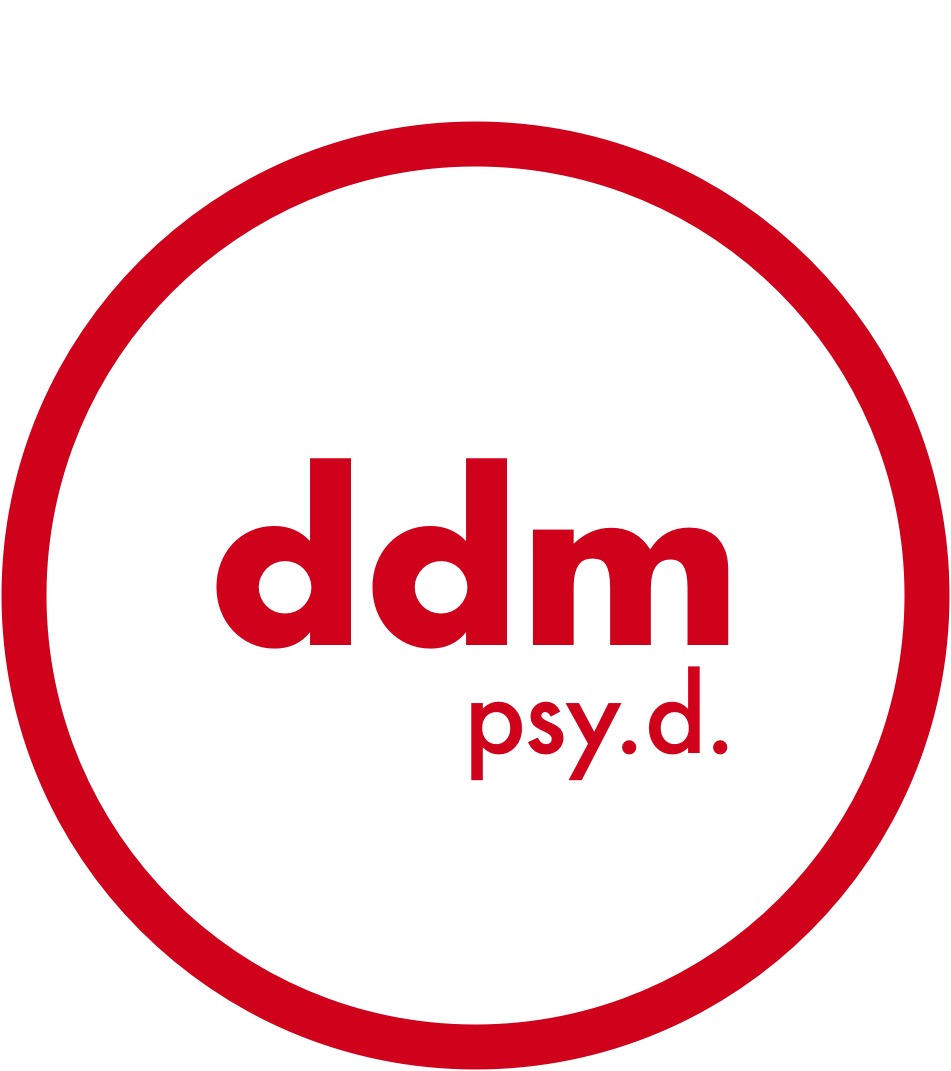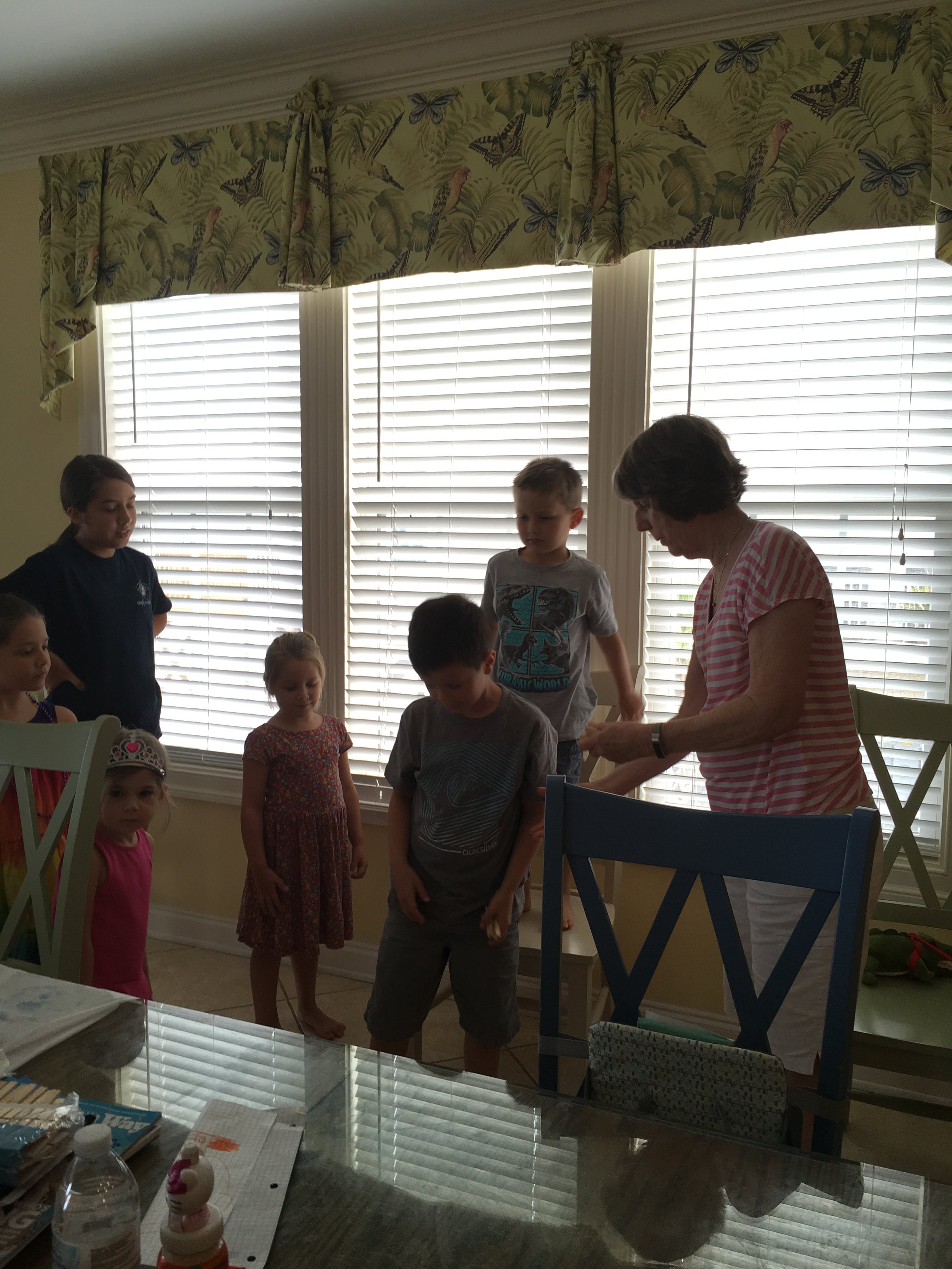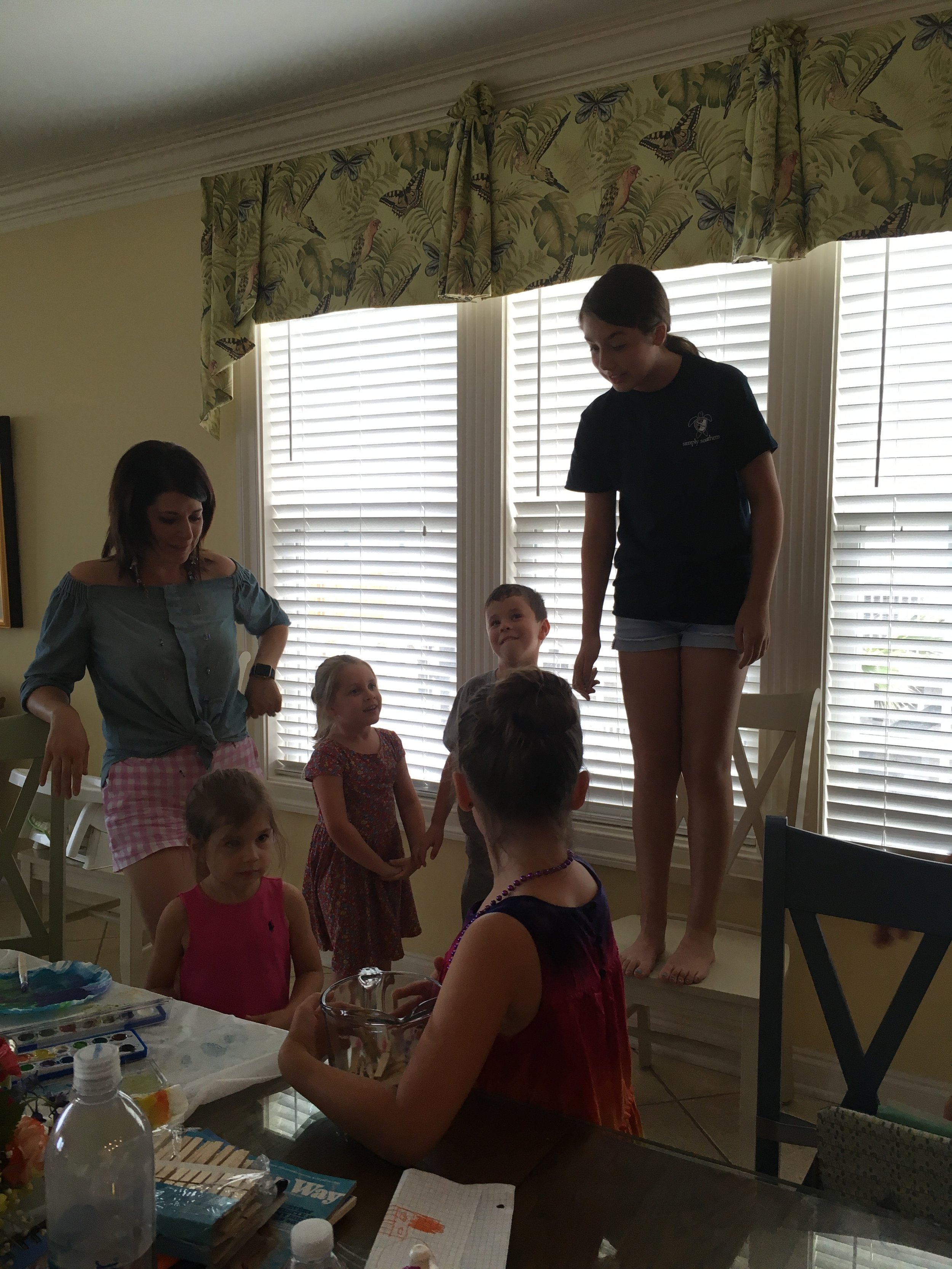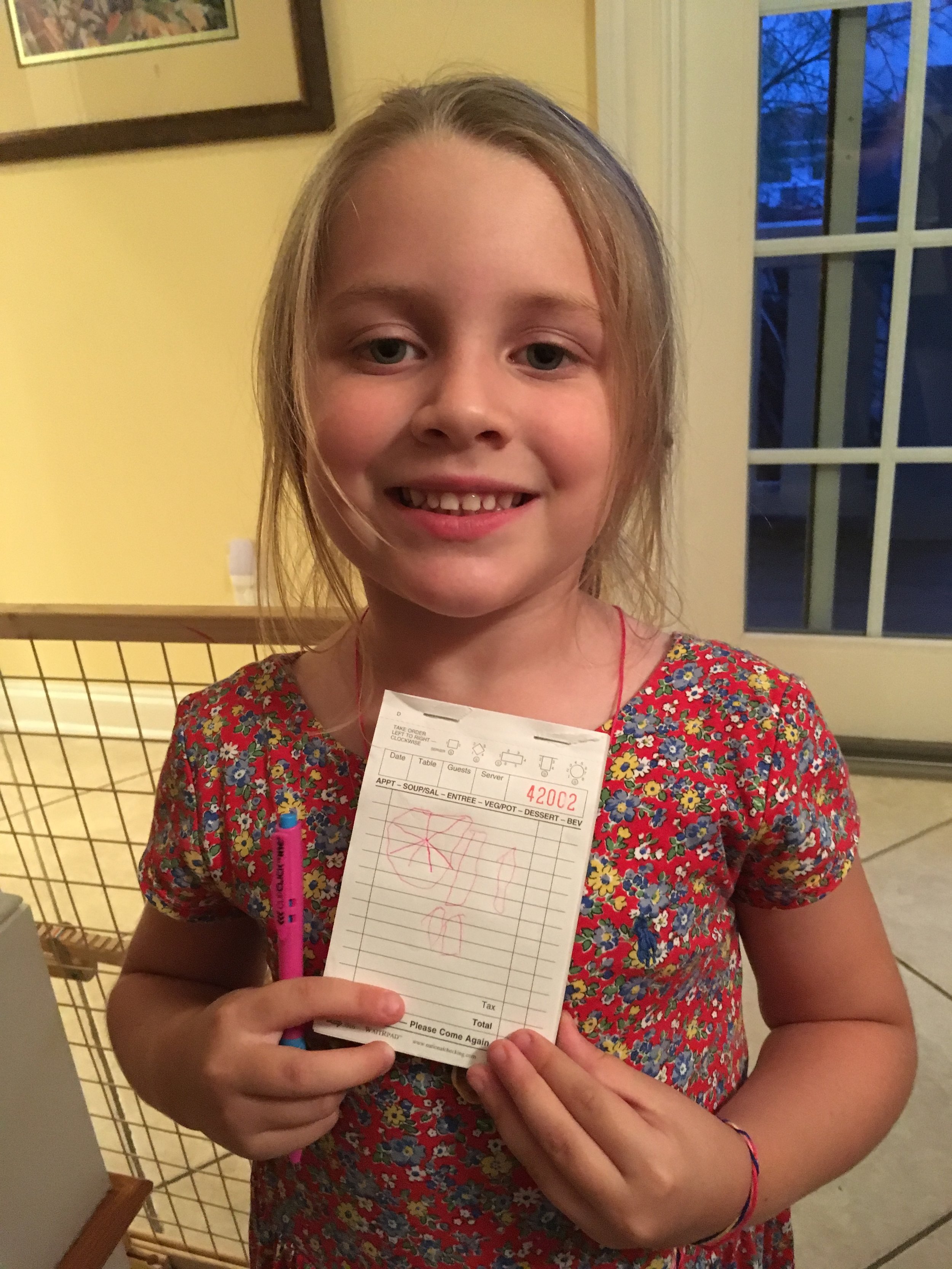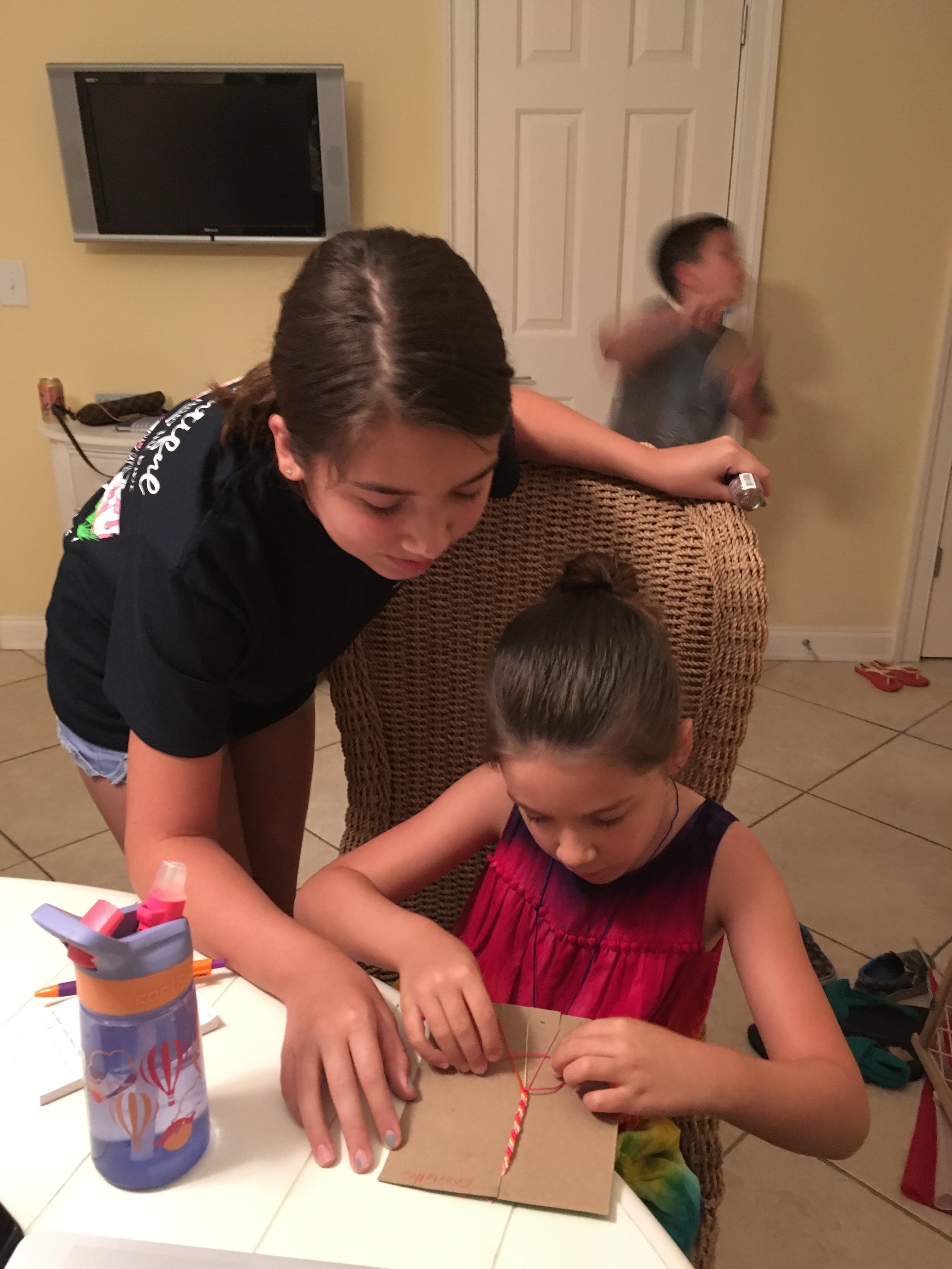Contrary to popular opinion, parties of all kinds effectively celebrated all manner of people prior to the invention of Pinterest. Homes were also decorated, craft projects commenced, and meals were cooked. It’s true. These things really did occur. I refer to the time wherein these occurrences took place as the Pre Pinterest Era.
Don’t get me wrong. I am not a hater. I understand and appreciate the art and value of curation. I know how helpful it can be to have a digital bulletin board on which to organize and from which to share. I believe, whole heartedly, in offering up great ideas that have worked and in having a place to find the same. I believe that imitation is the best form of flattery and that there is no need to re-invent the wheel. For all of these reasons and more, I respect Pinterest. My feelings, however, are not that simple.
I had the great good fortune of growing up among individuals who were eternally creative (even though many of them claim not to be). I had a mom who tirelessly let me host parties where my classmates built banana splits in each other’s mouths and we tie died in big bowls in the house - on the carpet. My parents let my brother and I move all the furniture out of our living room once to turn it into a Hawaiian paradise for an event and my brother and dad let me give them make overs when it was my turn to choose the family night activity. I had an aunt who manufactured all kinds of adventures for both my brother and I and then involved us in creating the same for her kids. Later, during graduate school, I was influenced by friends such as Carol Mc Queen who hosted all of her kids’ birthday parties at home on a modestly sized outdoor deck. Every party included pinning the tail/nose/flower on whatever object fit the theme and a rousing competition involving dropping a clothespin into a jar while standing on a chair. I’m not kidding when I say that these were popular parties filled with laughing children and smiling parents! These were easier times.
Last month Carol arranged for all her kids and grandkids to come together for a few days at the beach in South Carolina and, missing them all, I invited myself to two days of their reunion. Excited to get to know the spouses and children of the three amazing kids I had cared for during graduate school, I brought activities that would help the grandkids learn about their grandparents and their parents from the time when I was with them all. This was, by the way, in the Pre Pinterest Era. Anyone looking in my suitcase would have been baffled. It contained a package of clothespins, watercolor paints/pencils and brushes, a few drinking straws, nail polish, 7 restaurant order pads, click pens, and a board book for the youngest of the bunch. When I arrived at the hotel I re-considered my meager offerings and became concerned that everyone would think I was nuts. Even though I knew that these same items entertained Martin, Jamie, and Ruth for months on end in our weekly times together I seriously doubted how this small collection of random items would appear to the 9 children I was about to meet and to their married-in parents.
When I arrived late in the evening, I wasn’t sure any of the kids would be up so I came empty handed. Of course, the kids were all awake. Sitting at the table with nothing to connect us I wracked my brain for an idea. Certain that they were far too young to participate in the silly game, “2 Truths and a Lie,” I introduced it anyway since it was the only activity I could think of that would help me get to know them. Immediately, Adam, age 8, was entranced and was surprisingly skilled at the game. Forty minutes later, and several of the other cousins adding themselves in, we were still playing. The next day we gathered in small and large groups to put blobs of watercolor paint on paper and then blow it with straws to make patterns. We played restaurant, taking everyone’s orders and serving large trays of invisible food and, finally, invested almost an hour in the most popular activity of all…dropping clothes pins into a jar while standing on a chair. I’m not kidding when I tell you that all of the kids (with the exception of the two babies), lined up in order of age (which ranged from 3 to 13) and performed round after round of clothespin dropping while I told them stories about how their parent’s had done the same. It is fair to say that my meager and somewhat bizarre collection served their purpose. We had the tools we needed to get to know one another, to play together, and to bond. I felt immensely grateful that Carol and others had taught me these skills early on in my life.
It turns out that, while all the plotting, planning, purchasing, and perfecting that Pinterest affords may be fun (or expected or demanded or desired or pursued), it may not be necessary for a meaningful celebration. In my time with the Mc Queens I had to work within the scope of being out of my known environment and in keeping with FAA requirements for carry on luggage. This provided me with a valuable reminder: it is not the product that is always of utmost importance, but, rather, the process which affords encounter and experience.
Sites like Pinterest (or, perhaps, the way in which we engage them) have a profound influence on our ability to stay focused on the process of creating or being together or, even, of decorating a home. They provide an overwhelming stream of ideas and an abundance of images of the end products. They never stop giving us “just one more” perfect decoration to add, recipe to try, craft project to consider and they present each of their offerings with perfectly staged photos that dare us to try to match them.
I have come to think of Pinterest in the same way that I think about the parent that completes their second grader’s diorama. They sort of ruin it for the rest of us. I know you know what I mean. You go to Back to School night and “Ooh” and “Aah” at all the awkwardly placed items and zigzaggy cutting of second graders until you come across the one diorama that is just (how can I say it??) perfect. It looks sort of like a second grader made it but the cuts are too straight and the perspective too exacting and everything is just, well, too amazingly pulled off to have been imagined and created by the sticky fingers of a seven year old. Suddenly, all of your childs’ effort seems underwhelming when it’s next to this stunning example of execution.
Of all the things that the Internet has provided, the tendency to scan, savor, and selectively remember the successes and abundance of others in order to compare ourselves against them seems like one of the most ever-present. I challenge us all to consider at least brief respites into the Pre Pinterest Era as we plan our summer celebrations, craft time with children, or even adorning our homes. I encourage us to play with the idea of elevating the process over the content, of working with what we have, and of seeing that as enough. Then to turn and do that for others. To congratulate all the metaphorical second graders in our lives for doing their best work regardless of the outcome. To engage in life that is not curated or perfect, at least some of the time, and to rely upon our own imaginations some of the time rather than always referring to the dictionary of “just right.”
To get you started, here are some ideas to get you off of Pinterest and into a world of realistic and intentionally chosen actions.
Choose a spotting point to drive your preparations and the event. Static images can easily give the idea that ALL of the parts of a celebration are “en pointe.” The food, the decor, the stylishly arriving guests. Similarly, photos of craft projects or decorated rooms can be perfected before being taken. Decide, for yourself, what your primary goal is. Is it the process of making something? Is it the experience of playing with some new mediums? Is the goal of your gathering to encounter people, to serve amazing food, OR to have every corner decorated? List your possible goals then choose ONE with intention and forethought. Let the others go. No one will notice the store bought food if you are directing them toward the goal of encountering each other as the main event.
Work to let the competing spotting points go. Keep referring to your list, releasing the goals you are not focusing on and re-choosing the one you have committed to. You may have to do this over and over and over in order to successfully accomplish it. It is worth the work.
Use what you have. Commit to at least one gathering or crafting time (or whatever you are choosing to work on) where you purchase nothing new. Decorate a room with things you have in other rooms. Make up party games or activities with what you have. Invite people over for a fridge cleaning party where you empty yours and invite them to bring whatever they need to get rid of in theirs. When we indulge the idea that everything CAN and WILL be perfect we are also teaching others that we need and/or expect this from them. This is especially consequential for children. Do them the favor of showing them that what you have is good enough and, actually, can be more than wonderful. Being resourceful is a gift and it’s one we rarely practice any more. Work to build this skill in yourself. (If you really can’t bring yourself to pull this one off, host a tacky party. The whole goal is tacky, mismatched, what-you-haveness.”
Consider the memories of the party rather than the photographs of the party. As I talk with people about the tendency to try to pull of perfection as a result of curated inspiration boards I hear a lot of descriptions that sound like photographs. We think in images and hold ourselves to create the images we imagine. Instead, begin to challenge yourself to think in feelings or intentions. Rather than thinking, “I can picture everyone out on the torch and candle lit patio with glowing mint mojitos,” think, “I would love to create a space where every person feels uniquely welcomed.” Rather than approaching a craft time by thinking “I’m going to hang this in the entry way,” consider, “I’m going to fully notice how the paint feels when it leaves my brush.” Work from there.
Ask yourself, “Who am I doing each action involved in this event/happening for?/Why am I spending energy/money/time on each particular action?” If your answer is anything like “To impress (fill in the blank with the name of the host or hostess you most admire) and make everyone notice how talented I am.” let it go. See what it feels like to return to your chosen goal (rather than to try to choose ALL the goals) and keep trying to stick with it.
Arrive at the party/event/craft time/whatever you have chosen rested, with energy, and with a firm eye on your chosen spotting point. Give yourself a deadline well before the event or activity and stop prepping. Use the time to rest, have a cup of tea, do something rejuvenating for yourself. Truly. Since we have access to new ideas 24 hours a day and can have things delivered to us within hours we now press ourselves to keep pursuing perfection up the the moment people arrive or we begin our project. Try something new. Arrive at the time of execution rested, calm, and ready to hold true to your own chosen goal. If you don’t have everything you “need” find a way to either do without it or substitute something you have. You’ve got this…I know you do.
See “failure” as an opportunity for learning and growth. Some of my most cherished memories are the result of what could be considered failures. The time I accidentally used salt rather than sugar in the pancakes for a big breakfast gathering. The outdoor wedding I was coordinating where it poured rain and we held it outside without umbrellas anyway. Or the year I threw my dad a 70th birthday party when he was really turning 71. I know you have your stories to. Embracing who we are and what we have and learning to celebrate that is a gift. See if you can’t give this to yourself and others in order to celebrate process over content and encounter over perfection.
